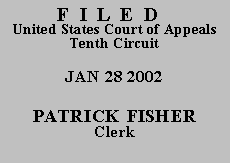

Defendant Cesar Gustavo Payan-Carillo appeals his conviction for illegally reentering the United States after previously having been deported, in violation of 8 U.S.C. § 1326(a). We exercise jurisdiction pursuant to 28 U.S.C. § 1291 and affirm.
Defendant's sole argument on appeal is that the government's evidence at trial was insufficient to establish that he previously was deported from the United States. More specifically, he acknowledges that he was the subject of several prior deportation proceedings, but argues the government's evidence failed to establish that he was "actually physically removed from the United States" as a result of those proceedings. Aplt. Br. at 5.
We review de novo the sufficiency of the evidence supporting defendant's conviction. United States v. Magleby, 241 F.3d 1306, 1311 (10th Cir. 2001). In doing so, we "ask only whether taking the evidence--both direct and circumstantial, together with the reasonable inferences to be drawn therefrom--in the light most favorable to the government, a reasonable jury could find [Defendant] guilty beyond a reasonable doubt." Id. at 1311-12 (internal quotation omitted). "We must not weigh conflicting evidence or consider the credibility of the witnesses, but simply determine whether the evidence, if believed, would establish each element of the crime." United States v. Vallo, 238 F.3d 1242, 1247 (10th Cir.) (internal quotation omitted), cert. denied, 121 S. Ct. 2205 (2001).
After examining the record on appeal, we conclude the government's evidence was sufficient to establish that defendant previously was physically deported from the United States. During trial, the government presented three warrants of deportation for defendant. The first, issued on December 18, 1996, was executed on June 12, 1998, at the Port of Laredo, Texas. Not only does the warrant contain the signature of the officer executing the warrant, it contains defendant's signature and his fingerprint, which was verified at trial as matching a fingerprint sample defendant voluntarily gave to the government in connection with this case. Although defendant contends the warrant was fatally flawed because it was not witnessed by anyone other than the officer executing it, we disagree. In our view, a jury could have reasonably inferred from the information contained in the warrant that defendant physically left the United States and entered Mexico on the date the warrant was executed. See United States v. Contreras, 63 F.3d 852, 857-58 (9th Cir. 1995) (concluding similar evidence overwhelmingly supported inference that defendant physically left the United States and entered Mexico). The remaining two warrants, which are substantially similar to the first (both contain defendant's signature and fingerprint), and which are attacked on minor technical grounds by defendant, were likewise sufficient in our view to support a finding that defendant was physically deported from the United States on two additional occasions. Finally, we note that defendant was interviewed after his arrest and admitted, under oath, that he previously had been deported on at least two occasions and specifically had crossed into Mexico at Laredo, Texas, when he was deported in October 1999. ROA, Vol. II at 53-54.
AFFIRMED.
Entered for the Court
Mary Beck Briscoe
Circuit Judge
*.This order and judgment is not binding precedent, except under the doctrines of law of the case, res judicata, and collateral estoppel. The court generally disfavors the citation of orders and judgments; nevertheless, an order and judgment may be cited under the terms and conditions of 10th Cir. R. 36.3.